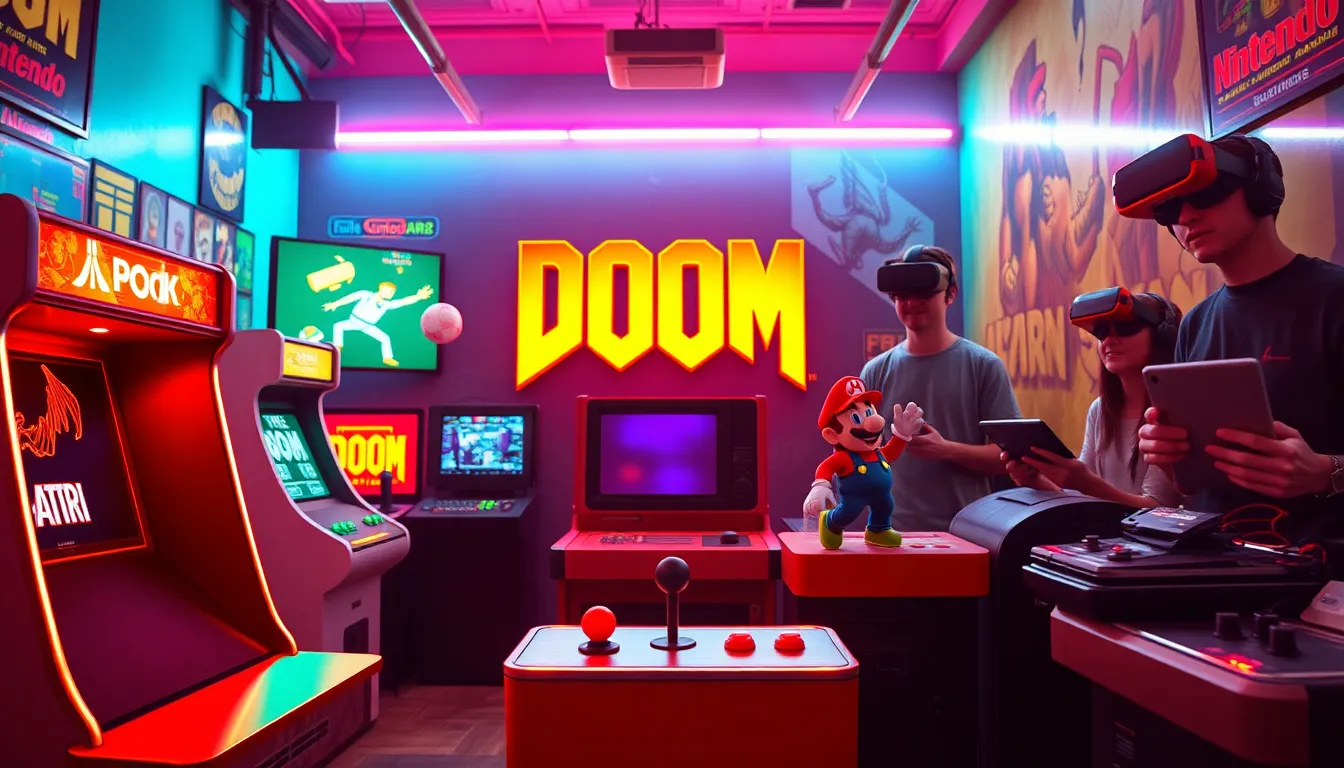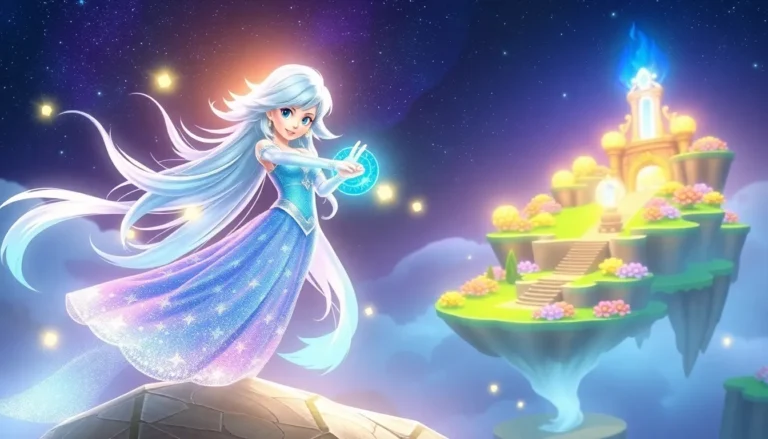Table of Contents
ToggleThe gaming universe is an ever-evolving landscape, full of imaginative worlds and incredible technology that captivates millions around the globe. From its humble beginnings with pixelated characters navigating simple environments, gaming has transformed into a sophisticated art form involving complex narratives, immersive graphics, and vibrant online communities. This article explores the evolution of gaming, from early milestones to the latest trends shaping the industry today. Whether a novice gamer or a veteran player, the journey through this gaming universe reveals a compelling story worth telling.
The Evolution Of Gaming: From Pong To Modern Titans

The gaming industry has witnessed monumental shifts since its inception in the 1970s.
Key Milestones In Gaming History
In 1972, Atari released Pong, a simple table tennis game that marked the birth of arcade gaming. This was followed by critical innovations such as the introduction of sound and color graphics in the 80s, with titles like Space Invaders and Pac-Man captivating audiences worldwide.
As home consoles arrived in the late 70s and 80s, the popularity of gaming surged. Nintendo’s Super Mario Bros. became a cultural phenomenon, setting the standard for platformers. The introduction of 3D graphics in the mid-90s further revolutionized the landscape with games like Doom and later, the iconic PlayStation titles.
Shifts In Gaming Technology Over The Decades
Technological advancements have continuously reshaped how games are developed and experienced. The transition from 8-bit graphics to stunning 4K resolutions, alongside innovations like virtual reality (VR) and augmented reality (AR), has blurred the lines between reality and the gaming world. As cloud gaming gains traction, players can access content from any device without needing high-end hardware. This evolution highlights a trajectory toward increased accessibility and enriched gaming experiences.
Impact Of Online Gaming And Multiplayer Experiences
The digital age has brought about a significant transformation in how games are played and enjoyed.
The Rise Of Esports: A New Frontier In Gaming
Online gaming has paved the way for a competitive landscape known as esports, where players can showcase their skills on a global stage. Esports tournaments attract massive audiences, often rivaling traditional sporting events. From League of Legends to Fortnite, esports has emerged as a viable career path for talented gamers, further professionalizing the hobby.
How Esports Changed The Perception Of Gaming
Once viewed as a solitary activity, gaming is now recognized as a social and competitive sport. This shift has led to a broader acceptance of gaming in society, as fans engage with their favorite players and teams through streaming platforms like Twitch. The community fostered around esports has also improved collaboration and strategic thinking among gamers.
Examining The Economics Of Esports
The financial landscape of esports has undergone substantial growth and complexity.
Understanding Game Design: The Art And Science Behind It
At the heart of every successful game is a well-orchestrated design that balances creativity with technology. Game design encompasses narrative, mechanics, and user experience, all meticulously crafted to keep players engaged. Implementing thorough testing phases ensures the final product resonates with its audience and fulfills both entertainment and economic objectives.
Elements Of Successful Game Mechanics
Engaging game mechanics are essential for drawing players into a game. This includes intuitive controls, rewarding progression systems, and compelling challenges that motivate players to develop their skills. Effective game mechanics also cater to both casual and hardcore audiences, providing diverse gameplay experiences that sustain player interest over time.
Narrative In Gaming: Storytelling Through Interactivity
Storytelling in gaming has evolved into a powerful tool for immersing players in unique universes.
The Role Of Community In Gaming Culture
In today’s gaming landscape, narratives are not just confined to the gameplay but extend into community interactions. Forums, fan theories, and user-generated content enrich the universe, allowing players to play an active role in storytelling. This collaborative storytelling fosters a deeper emotional connection between players and the game world.
Fostering Connections: How Gaming Brings People Together
Gaming serves as a social hub, bringing together players from various backgrounds. Cooperative gameplay and online communities have developed friendships and even romantic relationships, proving that gaming transcends mere entertainment. Events like game conventions and online meet-ups further empower communities, ensuring that players feel a sense of belonging.
Gaming Trends: What’s Next For The Industry?
As technology continues to advance, so do gaming trends, hinting at exciting future possibilities.
Predictions For Future Gaming Innovations
The future of gaming appears bright with emerging technologies like AI-driven game design and enhancements in VR gaming. These innovations will likely create hyper-realistic experiences and intelligent NPC interactions that further immerse players in their favorite worlds. Concerns around data privacy and online security will also drive future industry practices, ensuring a safe environment for players.
The Growing Importance Of Indie Games
Indie games are gaining traction in the market, often delivering unique experiences that larger corporations overlook. With lower budgets and fewer restrictions, indie developers can explore creative concepts, leading to groundbreaking gameplay and narratives. As more players seek authentic experiences, the importance of the indie game sector will only continue to rise.
Conclusion
Summarizing, the gaming universe is a vibrant, evolving landscape that has matured over decades. From its early roots to modern titans, gaming has transformed into a multifaceted industry merging technology, creativity, and community. As games continue to blend narratives with interactivity, and as esports take the center stage, the gaming world remains poised for further innovation. Whether driven by commercial giants or independent developers, the journey ahead promises new adventures and experiences for gamers around the globe.





